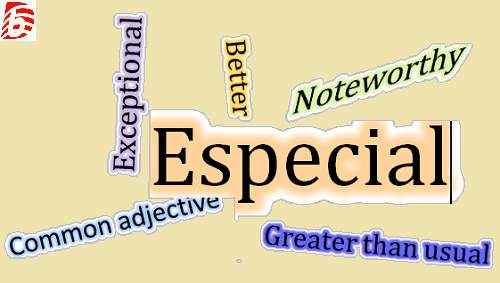Special vs Especial
In the past, grammarians have explored the potential difference between the words special and especial. They discovered that there may be a slight difference in the usage of the two words, or possibly not much difference at all. However, there are some distinctions in the ways these words are used.
What does Special mean?
Special is a commonly used adjective with various meanings such as ‘distinct way,’ ‘designed for a particular purpose,’ and more. According to the Oxford dictionary, the primary definition of special is ‘better, greater, or otherwise different from what is usual’. The adverbial form of special is ‘specially,’ which is not very common. Specially means ‘in a distinguished manner,’ ‘particularly,’ etc., while ‘especially’ means ‘exceptionally,’ ‘particularly,’ and so on.
Key Takeaways
- Special is a common adjective, while especial is an uncommon adjective.
- Special has an adverbial form, ‘specially,’ and especial has an adverbial form, ‘especially.’
- Some grammarians believe the adjective special can be used in place of especial, but the adverbs especially and specially should be used more carefully.
What does Especial mean?
Especial is also an adjective, but it is an uncommon one. It has various meanings, such as ‘noteworthy,’ ‘exceptional,’ etc. According to the Oxford dictionary, especially means ‘better or greater than usual; special’ or ‘for or belonging chiefly to one person or thing.’ Although special is a common adjective, its adverbial form, especially, is more frequently used these days.
What is the difference between Special and Especial?
These two words, special and especial, are often used synonymously with no significant difference. However, a strict grammarian would use especial to emphasize something exceptional or noteworthy and special to emphasize the distinctive purpose of something. Some best grammarians believe that the adjective especial is rare and that using special in all cases is sufficient. However, they believe there is some difference in the usage of the adverbs especially and specially. Especially follows a subject, while specially is used to convey the sense of ‘for a special purpose.’
Summary
- Special is a common adjective, while especial is an uncommon adjective.
- The adverbial forms of the words are specially (for special) and especially (for especial).
- Even though special is a common adjective, especially is the more commonly used adverbial form.
- Using the adjective special for both special and especial is generally acceptable. However, the adverbs especially and specially should be used more carefully, according to the intended meaning.
